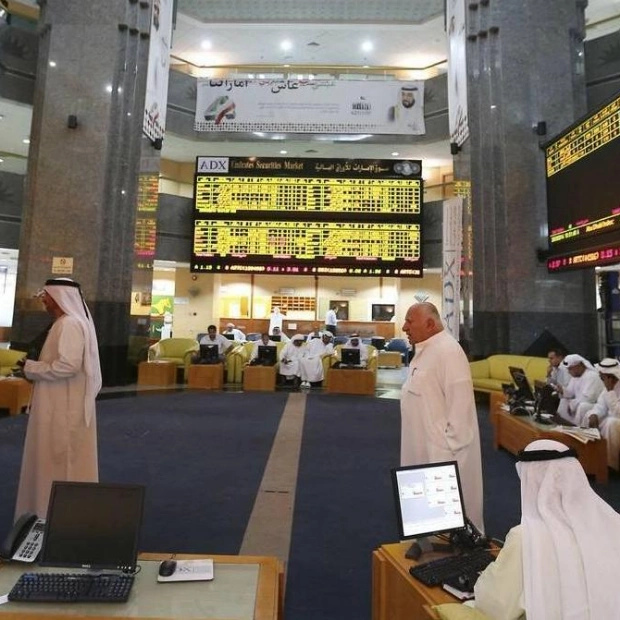In the dynamic world of global finance, digital twin technology emerges as a groundbreaking force. This sophisticated technology, which generates virtual counterparts of physical assets and systems, is dramatically reshaping the UAE's economic scene, propelling it towards becoming a leading financial center. As Mohammed Shaheen, Founder and Director of Seven Capitals DIFC, emphasizes: "Digital twin technology is not merely about innovation—it's about revolutionizing our approach to and management of financial systems." Data Bridge Market Research projects that the global digital twin financial services and insurance market will surge to $16,341.97 million by 2031, up from $4,882.77 million in 2023, with a projected CAGR of 16.3 percent during the forecast period from 2024 to 2031.
Digital twin technology significantly impacts financial forecasting and risk management in the UAE's financial sector. By merging historical data with real-time information, digital twins offer precise simulations of financial systems and market conditions. This enables institutions to visualize future scenarios accurately. "With digital twins, we can simulate various market conditions and stress scenarios, providing a clearer picture of potential risks and opportunities," explains Shaheen. He further illustrates: "For instance, financial institutions can use digital twins to model the effects of global economic shifts on local markets. This proactive approach helps refine forecasting models, making them more reliable and aligned with current market dynamics." He also notes that firms using digital twin technology see up to a 25 percent improvement in asset management efficiency and a 20 percent increase in investment returns.
Digital twins also play a crucial role in optimizing asset management and investment strategies within the UAE's financial markets. By creating virtual models of assets and market conditions, these technologies allow financial institutions to evaluate various investment scenarios with greater precision. Shaheen highlights: "Digital twins enable us to model the impact of market fluctuations on different asset classes, such as real estate and equities, helping us make more informed investment decisions." Market research by McKinsey indicates that firms using digital twin technology have improved their regulatory reporting accuracy by up to 30 percent. In the UAE, where real estate investments are significant, digital twins can simulate property market trends and predict future value changes, allowing asset managers to adjust their strategies dynamically.
Another significant advantage of digital twin technology is its impact on regulatory compliance and transparency. Digital twins can model complex regulatory scenarios and provide real-time monitoring of financial operations, enhancing institutions' ability to adapt to new regulations and ensure compliance. As Shaheen notes: "Digital twins offer a proactive approach to regulation, enabling us to stay ahead of compliance requirements and maintain transparency." He further elaborates: "Digital twins also improve transparency by offering a clear and verifiable view of financial operations and transactions. This enhanced visibility helps reduce the risk of fraud and build greater trust among stakeholders."
Digital twin technology is set to revolutionize customer experiences and personalized financial services in the UAE. By creating detailed simulations of individual customer profiles, digital twins enable financial institutions to offer highly tailored financial solutions. "With digital twins, we can model a customer's financial habits and preferences, allowing for personalized product recommendations and proactive advice," clarifies Shaheen. A recent study by Grand View Research suggests that the revenue for markets from digital twin initiatives could reach $26 billion by 2025. Despite its benefits, implementing digital twin technology in the UAE’s financial sector comes with challenges, including data privacy and security concerns, high costs, and data quality issues. However, by addressing these challenges strategically, the potential of digital twin technology can be fully harnessed.
Digital twin technology is poised to play a pivotal role in the development of smart cities in the UAE, influencing economic growth through enhanced financial services. By creating detailed virtual models of urban environments, digital twins facilitate efficient city management and infrastructure optimization. This efficiency enhances the financial sector’s ability to provide targeted investment strategies and financial solutions. "As smart cities evolve, digital twins will streamline urban planning, reduce operational costs, and improve service delivery. This will not only drive economic growth but also attract further investments, solidifying the UAE’s position as a global financial leader. Digital twins are transforming our approach to urban and financial planning, fueling economic growth, and positioning the UAE at the forefront of innovation," concludes Shaheen. In essence, digital twin technology is a catalyst for economic advancement in the UAE, enhancing financial forecasting, optimizing asset management, improving regulatory compliance, and revolutionizing customer experiences.






